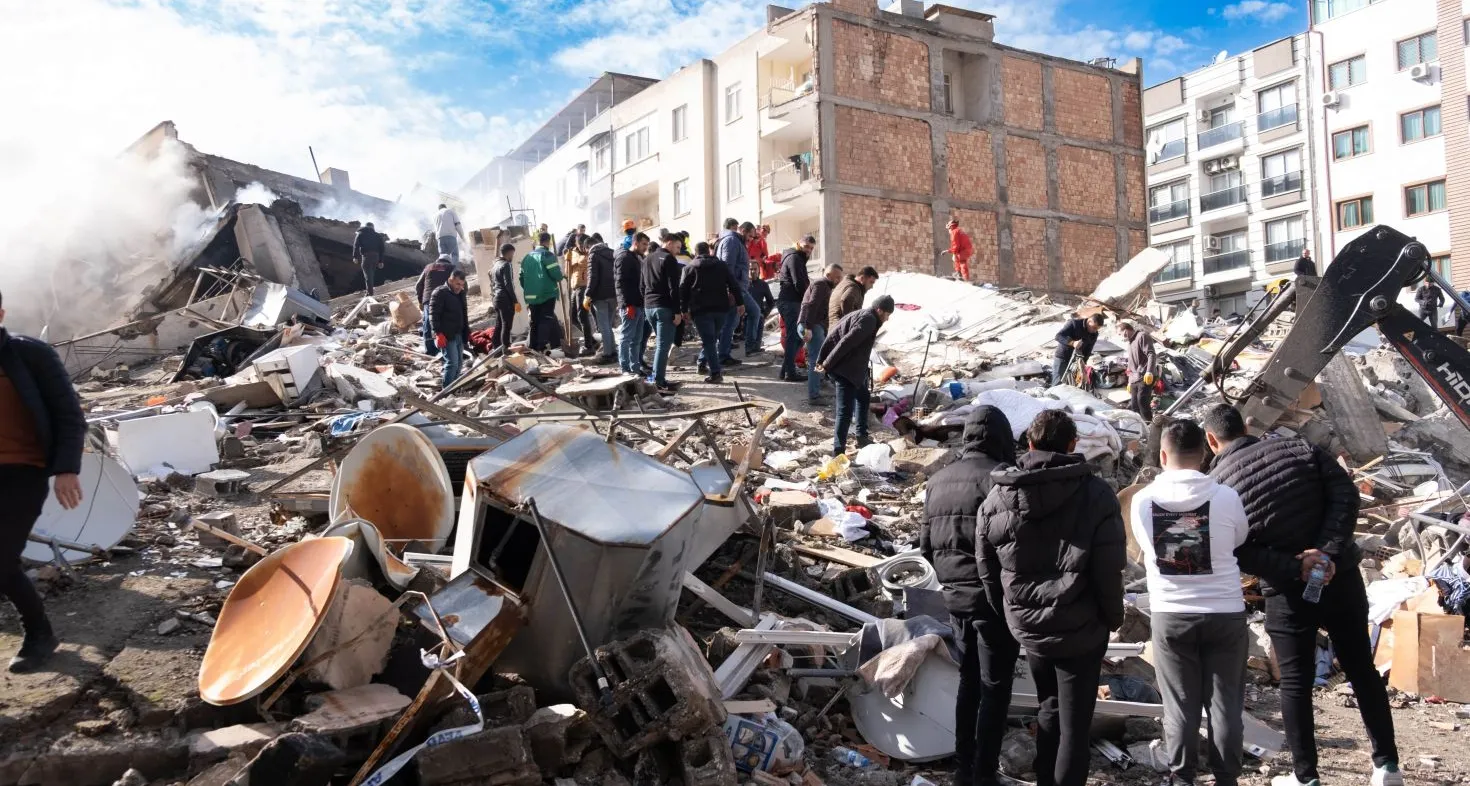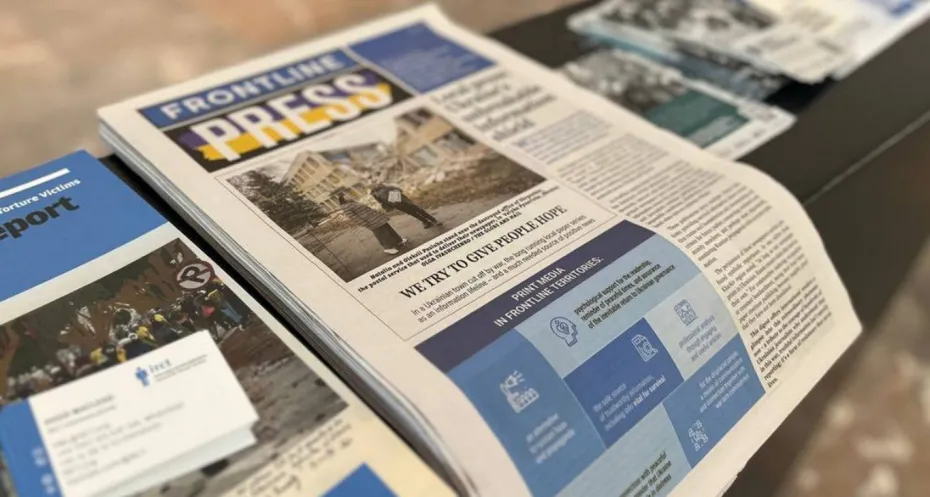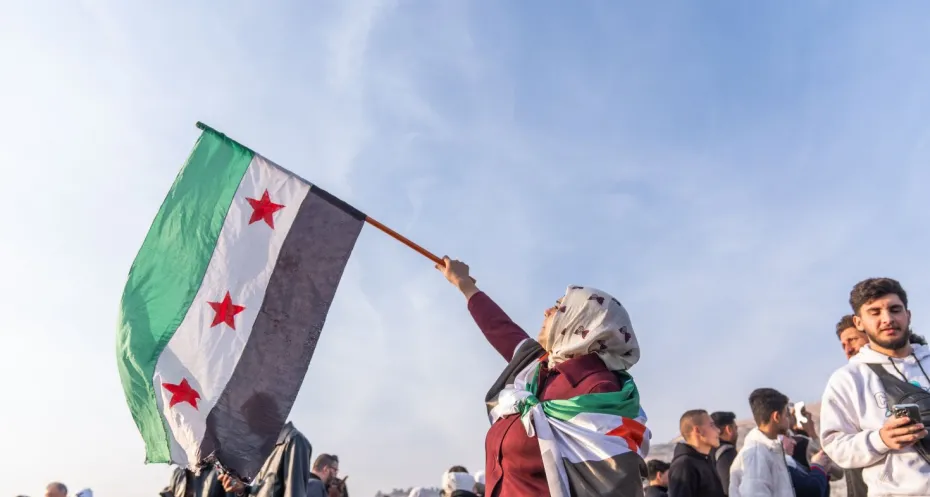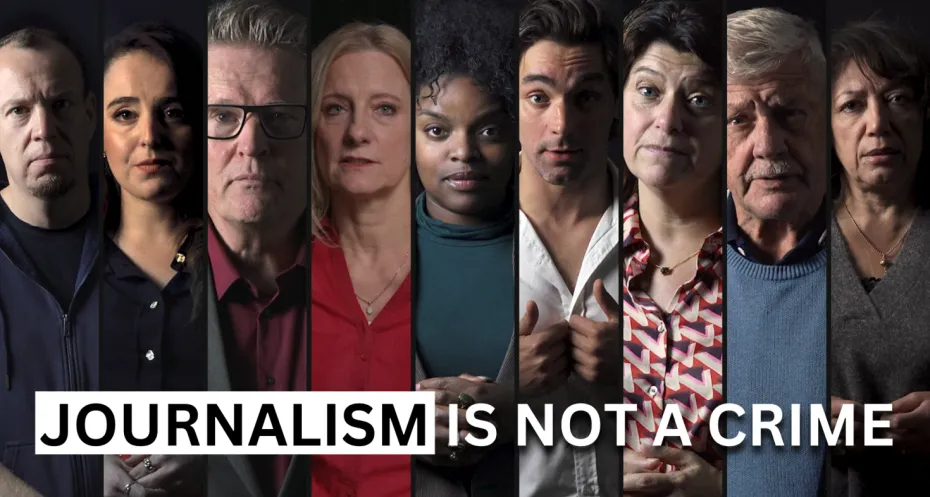
Syrian independent partners prevented media dark areas in the aftermath of the earthquake
The earthquake on the Syrian and Turkish border, exactly one year ago today, affected the media outlets and organisations that Free Press Unlimited works with badly. This came on top of the destruction of the ongoing conflict. But that did not prevent them from bringing affected Syrians’ stories straight from the ground. Today we are looking back at how they have dealt with the situation after the disaster struck.
After the earthquake hit, Free Press Unlimited supported media outlets and journalists in distress as much as possible with emergency response. In parallel, Free Press Unlimited started a reflection track conducting research that analysed the role of media actors and their efforts to ensure accountability after the earthquake. In this particular case, the research focused on analysing how international, regional and national media covered the earthquake’s impact in Syria.
The devastating 6th of February 2023 resulted in more than 50.000 victims in southern Turkey and almost 9.000 in northwest Syria plus countless infrastructure damages. The political, economic and social context in which the earthquake took place remains particularly relevant for Syria, as this crisis has further demonstrated the lack of support to the Syrian people, especially in times of disaster. It also highlighted the need for a media system capable of holding those responsible for aggravating the humanitarian situation accountable, and putting pressure on local and international actors to improve the situation.
Main results of the research
The research showed that the international and regional media focused mainly on Turkey, as most of the reporters were stationed in Turkey and did not even enter Syria. After two months, the international coverage dropped consistently and the earthquake appeared to be almost forgotten in the international agenda. The earthquake was often covered without locating it in its wider political and economic context, and especially the conditions created by the civil war. This not only makes journalistic accountability more difficult, as without the context the audience cannot grasp where responsibilities lie, but it also does not help to understand the extent of the catastrophe and the urgent need to increase the level of intervention.
The research showed that the international and regional media focused mainly on Turkey, as most of the reporters were stationed in Turkey and did not even enter Syria.
Therefore, international media coverage was more concerned about celebrating the efforts made by the international community and did not highlight how much these efforts were insufficient and unsuccessful in the case of Syria. Independent Syrian media on the other hand allocated more space and time to Syrian voices and actors, focusing on affected areas in Syria and also on capturing stories involving Syrians in Turkey.
Independent Syrian media were vital in giving access to first hand information from the ground and stories on affected people, and by doing so preventing media dark areas. But the context in which they work is extremely difficult, and therefore continued support is indispensable. Support is especially needed for more evidence based stories that hold the local and international response accountable. For example, partners could not dedicate stories on why humanitarian aid did not work as it should have, and who is responsible for this failure. There is a lack of proper resources, of dedicated analytical or investigative pieces and necessary background information of experts and well-informed local sources. Therefore, Syrian independent media still needs support to develop a strong and resourceful media able to exercise a proper watchdog role.
The role of independent local media in case of a natural disaster
- They are the voices of the people and help families, humanitarian aid organisations and authorities to track the situation
- They offer useful advice and information to cope
- They show the local resilience of civic initiatives
- Despite the ongoing conflict they can join in solidarity for the victims, and present solutions by providing reliable and suitable information
The work of our partners
Despite the challenging circumstances our partners still remained dedicated to deliver reliable information and shed light on how the earthquake had far more repercussions for Syria than for its neighbouring countries due to its political and economic context.
Reporters on the ground were working tirelessly to provide extensive coverage of all areas affected by the earthquake. In the weeks after the earthquake, it mostly focused on civil society response initiatives. Our partners continued with publishing educational content regarding correct communication methods with survivors, the legal issues that Syrian refugees in Turkey have been facing, the protection that women need against abuse in shelters, while also making sure to capture individual stories of affected people.
Support from Free Press Unlimited
Free Press Unlimited’s early emergency response to the disaster consisted of allocating small crisis grants to our partners to help them relocate. Some of them needed support with transportation, moving equipment or temporary accommodation. These small grants also helped to bridge payment gaps to staff, and to link journalists on the ground with international media to prevent media darkness. It also involved mental health support and post traumatic stress counselling sessions to recover from the impact of the disaster.
Throughout 2023 Free Press Unlimited also organised a series of online webinars, meant for Syrian independent media to learn and reflect on their role in times of crisis. The webinar created a space to openly share experiences and discuss ethical dilemmas that rise while reporting on a disaster. Topics that were discussed are: the management of newsrooms during a crisis, how to make use of citizen journalism and videos from the field, fact checking, competing with social media, and cooperation with Civil Society Organisations in the midst of a crisis.
All in all, the support that Free Press Unlimited provided to the media outlets and organisations in Syria on the ground was crucial for the consolidation of their work in this time of crisis. However, a reflection track to further identify the role of independent media in ensuring accountability, especially after the earthquake, is instrumental. It is important to identify what Syrian independent media need to be able to keep making accountability stories, also in moments of crisis. That contributes to developing a media system capable of holding authorities accountable, and putting pressure on local and international actors to improve the situation.



